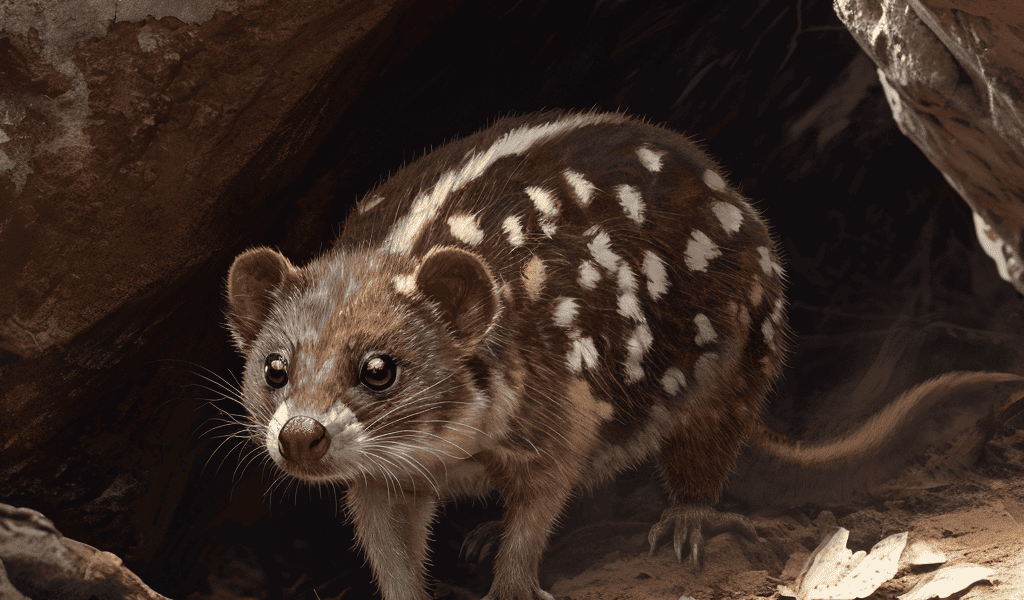Tasmanian devil die-off is shifting another predator’s genetics
08 January 2024
Declining numbers of the endangered Tasmanian devil (Sarcophilus harrisii) are affecting the evolutionary genetics of a small predator, the spotted-tailed quoll (Dasyurus maculatus), according to a study published today in Nature Ecology & Evolution1.
For the past three decades, Tasmanian devils — carnivorous marsupials native to the island of Tasmania in Australia — have been affected by an infectious type of lethal cancer known as devil facial tumour disease (DFTD). The devil population has declined by nearly 70%, from 53,000 in 1996 to 16,900 in 2020, mainly because of DFTD, which is passed on through biting2.
Storfer and his PhD student Marc Beer wanted to study how this decline in devil numbers is affecting another marsupial, the spotted-tailed quoll. Devils and quolls have similar diets and are both active at night, scavenging for food. But devils are larger and more aggressive, so quolls tend to avoid them.
The researchers analysed 3,431 genetic variants in the genomes of 345 quolls across 15 generations. They searched for evidence of changes in the variation and selection of genes in quolls that could be associated with the prevalence of DFTD in devils and with the devils’ population density.
They found that the decline in devil numbers has led to changes in the genetics of the spotted-tailed quoll population. The smaller predators are experiencing shifts in their evolutionary genetics, likely due to the decrease in competition and the availability of more resources caused by the decline in devil population.
This study sheds light on the intricate relationships within ecosystems and how the decline of a top predator can have ripple effects on other species in the food web. The findings provide valuable insights into the complex dynamics of predator-prey interactions and the evolutionary consequences of population declines in key species.





